- Home
- Joel Goldman
Final Judgment Page 27
Final Judgment Read online
Page 27
“Look at that map,” Mason said, pointing to the GPS screen. “The lake looks like Italy and we just crossed the border from France. Ernie Fowler’s house is south of Rome. The way this road curves around, we are going to have to knock on his door. There’s no way we can get there without being seen.”
“You want to see his house from the outside in or the inside out?” Blues asked.
“I’ll settle for outside. My breaking-and-entering days are behind me.”
“Too much conscience is a bad thing for a man in our line of work,” Blues said.
“Maybe I need a new line of work. What about the lake? If we can find a boat, we can check the house out from the water.”
“I’ve got a pair of night vision binoculars in the trunk. But I didn’t have room for the boat.”
“We can borrow someone’s boat,” Mason said. Blues looked at him, eyebrows arched. “We’ll put it back and I’ll leave gas money, all right?”
“Need a new line of work, my ass.”
Lake Shore Drive circled Lake Lotawana. Side streets named with single letters led from Keystone to the homes at the water’s edge, the entrances to each flanked by long, curved brick walls that gave way to a split-rail fence, the fence connecting to the brick wall at the next side street. The wall and fence added an air of privacy to the residential area though they wouldn’t keep anyone out.
Ernie Fowler’s house was on L Street. They drove south on Keystone along the west flank of the lake, pulling onto the shoulder just beyond the entrance to L Street, not wanting to risk that someone was watching from the house for any unexpected traffic.
“Let’s see how close we can get without being shot at,” Blues said.
They took their time, Mason letting his eyes adjust to the darkness, Blues scanning the street with his night vision glasses. The street was laid out in a T shape with houses on both sides of the vertical leg and a row of houses on the horizontal bar at the top of the T. These were the lakefront houses and Fowler’s was at the south end, cut off from his neighbors by a row of evergreens grown to privacy heights.
There were no streetlights and all of the houses were dark, late February not a popular time at the lake. The houses were spread apart, divided by mature stands of trees.
Like the others, Fowler’s house was dark on the front, though they could see a glimmer of light through the front windows coming from the back of the house. The sedan and the minivan were parked in the driveway. The hoods of the cars were still warm, as was the hood of an SUV that was parked in front of the house next to Fowler’s. Back in the car, Blues studied the GPS screen.
“There,” he said. “The next road over is M. Let’s hope somebody left their boat in the water.”
M Street was laid out in the same fashion, the houses blacked out. There were no cars on the street or in the unattached carports. Blues picked the empty carport for the house at the top of the T, giving him a straight shot to Keystone. He backed in, unscrewed the bulb in the car dome light, and grabbed his night vision binoculars.
The yard behind the house was deep and wide open before reaching a forested tree line and sloping gently down to the water. Wooden stairs had been cut through the trees, leading to a dock where they found an aluminum fishing boat with its motor lifted out of the water.
“Just what we’re looking for,” Blues said. “Won’t be too noisy or noticeable. No running lights either. That’s even better.”
“The god of the slippery slope is smiling on us,” Mason said.
“Hey. No one is making you do this but you. I could be home with my feet up watching SportsCenter, you just say the word.”
Mason took a deep breath. “You’ll be the first to know. Let’s go.”
Blues kept the boat quiet, revving the engine barely above trolling speed. They crossed to the east side of the lake before turning north, hugging the eastern shore until they were directly across from Fowler’s house. A light was on inside the room adjoining the deck, probably the den or kitchen, Mason guessed. The light was bright enough that they could make out the shapes of people standing on the unlighted deck.
“How far away are we?” Mason asked Blues when they cut the engine.
“Five hundred yards, give or take,” Blues answered, studying the deck through the binoculars. “Looks like a party. Kelly and Brewer are there. I don’t recognize the others.”
“What’s Fowler’s phone number?” Mason asked, opening his cell phone.
“You sure you want to call right now? What if Fowler has caller ID? What are you going to say after you say hello?”
“You’re right. Give me the glasses.”
He adjusted the focus, capturing Kelly, Brewer, and Al Webb huddled at the deck rail. Even in the green glow of the night vision, there was no mistaking them. He swept the deck to see who else was there. The driver of the sedan stared back at him through his own binoculars, which he quickly lowered, rushing to Webb’s side and pointing at the boat across the water. Webb snatched the glasses from him and looked for himself.
“Shit!” Mason said, ducking into the bottom of the boat. “We’re busted. Get the hell out of here!”
They’d been seen, though there was no way to know if they’d been recognized, the distance and darkness in their favor. Blues started the engine and flattened himself against the seat, steering with one hand while watching the bow rise as the boat picked up speed.
The shape of the lake worked against them. Webb had a perfect view of their escape. If they cut back across the lake to M Street, he would know where to find them and would probably get there before they did. If they continued on their present course, they would have to get out on the east side of the lake with no way to get back to the west side and their car other than a walk that would take the rest of the night. He made his choice, angling the boat hard toward M Street.
Mason tied the boat to the dock and followed Blues to the line of trees at the edge of the backyard. They listened for the sounds of another car or anything else that didn’t belong on a deserted street but heard nothing.
“Be quick but don’t hurry,” Blues told Mason, pointing toward the car.
They cracked the doors and slid in, closing them as quietly as German engineering made possible. Blues started the ignition, keeping the headlights off, just as a car skidded to a stop at the entrance to the street, blocking their exit. The bodyguards from the Galaxy Hotel got out carrying guns. They signaled to each other, pointing at the BMW, the only other car on the deserted block. The added shadow of the carport made it impossible for them to see Blues and Mason inside the car, though the engine was running.
The brick wall and split-rail fence bordering the entrance to the street, together with the car parked in the intersection, had Blues and Mason bottled up. The fence was the obstacle of least resistance, though the odds were good that they would be shot before they got that far. They would be even easier targets if they tried to escape on foot.
“I don’t suppose BMW equips these cars with guns,” Mason said.
“Nope,” Blues said. “Should have brought my pickup. Got a nice shotgun on the rack be the perfect equalizer for these boys.”
“Any ideas?”
“Ever play bodyguard pinball? Car doors make great flippers. When we get close enough, I’ll floor it. Stay down and be ready.”
When the bodyguards reached the end of the driveway, Blues shifted into drive, letting the BMW roll out of the carport. The bodyguards took aim and inched forward, lined up so that they would be on each side of the car as it passed.
In the same instant Blues stomped on the accelerator and hit the high beams, blinding the bodyguards. Mason and Blues flung the car doors open as they sped past, catapulting both bodyguards into the air before they could fire a shot.
Blues jammed on the brakes and they got out. Neither bodyguard was conscious, though both were breathing. Blues picked up their guns and their wallets, taking their driver’s licenses. He ran back to the lake and threw
their guns into the water. When he came back, he handed Mason their driver’s licenses.
“These names mean anything to you?” he asked Mason.
The one who had worked Mason over at the hotel and picked up Fish’s coat was Bud Tenet; his partner was Frank Naughton.
“No, but with the phony IDs in this case, these probably aren’t the names their mamas gave them.”
Mason rifled their pockets until he found the keys to their car and a cell phone. Blues parked their car alongside them while Mason used their cell phone to call 911 and report that there were two drunks passed out on M Street.
They passed the Lake Lotawana police station as a cruiser pulled out, siren sounding and lights flashing, an ambulance right behind it. They were northbound on Highway 71 when Mason’s cell phone rang. It was Kelly Holt.
“How was dinner?” she asked.
“Nice and quiet.”
“I’m glad to hear that.”
“Really?”
“Really. See you tomorrow,” she said.
SIXTY-SEVEN
Blues parked the BMW behind the bar, avoiding potholes as if he had radar. Driving back, they had dissected the possible explanations for what they’d witnessed. Both Kelly and Brewer could be dirty or both could be working undercover; or, only one of them may be on the take while the other was trying to bring him or her, and Webb, down. They exhausted the evidence and gave up, declaring themselves a hung jury of two. The only verdict they reached was that they couldn’t trust either one of them.
“So what about Fish?” Blues asked. “Why did Rockley’s killer dump the body in the trunk of his car?”
“Either it was a coincidence, and I don’t believe in coincidences, or the killer knew there was a connection between Fish and Webb and wanted to take advantage of it.”
“How?”
“I don’t know. Once the body was identified, the cops would look for a connection to Galaxy since Rockley worked there and was in the middle of a sexual harassment suit. After they made the connection between Fish and Webb, they’d have to take a hard look at Webb.”
“But they haven’t made the connection,” Blues said. “You told me that the cops are only looking at Fish.”
“Griswold made some noise about Mark Hill, but that’s over since Hill was killed. Now they want to talk to Fish about that murder too.”
“The feds must not have told the cops about Webb.”
“You’re probably right,” Mason said. “Pete Samuelson and Kelly both said they had to protect their investigation. They wouldn’t tell the cops that Webb is really Fish’s old scam partner because the cops would go after Webb and Webb would figure out why. That would blow the lid off their investigation.”
“Only people that would know all of that have FBI Agent printed on their business cards. You thinking Kelly or Brewer killed Rockley?”
Mason shuddered at the image of Kelly hunched over Rockley’s body, sawing away at his neck and wrists. Whatever she may have become, he couldn’t accept that she was a killer. It was easier to imagine Brewer as the butcher.
“Not Kelly—maybe Brewer. Someone at Galaxy must have tipped off the FBI that Webb was really Wayne McBride. Maybe it was Rockley and that’s why he was killed. Or, maybe it was Johnny Keegan and that’s why he wanted to hire me. Either way, Brewer knew that Pete Samuelson was going to use Fish to close the loop on Webb.”
“Guys like Webb would give up their grandma to make a deal,” Blues said.
“Or their silent partner, especially if he happens to be an FBI agent.”
“So Brewer kills Rockley to slow down the investigation and cuts his head and hands off to slow it down even more. I can buy all of that, but why would Brewer dump Rockley’s body in Fish’s car?”
“Sends a powerful message to Webb to keep his mouth shut,” Mason said.
“Remind me about your plea negotiations on Fish’s mail fraud charge. When did the U.S. attorney demand that Fish help them with the investigation of Webb?”
“Officially, not until after they found Rockley’s body in the trunk of Fish’s car,” Mason said. “Up until then, we were just trading dollars and days. But I think Pete Samuelson was about to make the pitch when Brewer walked in and dropped the hammer. What’s your point?”
“Webb killed some dude and used the body to fake his own death. He got away with it until he started skimming from Galaxy. Rockley or Keegan tipped off the FBI that Webb was really McBride. Now, they don’t just want him for stealing. They want him for murder. They set up a reunion between Webb and Fish hoping that Webb will tell Fish all about it so they can make the murder case against Webb.”
“But if Fish is convicted of Rockley’s murder, he makes a lousy witness against Webb,” Mason said. “That’s why Brewer left Rockley’s body in the trunk of Fish’s car—to frame Fish and ruin his credibility as a witness against Webb.”
“Makes sense for Brewer to kill Rockley, but it doesn’t make sense for him to leak the identification of the body. It was going to come out in a few days anyway.
“Actually, it does,” Mason said. “Rachel wouldn’t have run that story without corroboration from two sources. She already had it from one source when she went to Brewer. He gave it to her because it was going to come out anyway and he knows the killer wouldn’t do that. At the right time, he’ll probably admit to being the source.”
“Maybe so. But the whole thing makes my hair hurt. Most people don’t plan so carefully when they kill someone unless they’re a serial killer or a pro. Usually, it’s all about hot money, hot blood, or hot pussy. They shoot first, then do something really stupid and get caught. We’re trying too hard to make everything hang together.”
Mason let out a sigh. “You got any better ideas?”
“The FBI got my picture when they opened up somebody’s e-mail. Had to be Webb’s. When I was checking out Rockley’s apartment, one of his neighbors told me that someone else had been asking around for him. Could be that was the cat that took my picture and e-mailed it to Webb. We find out who sent that e-mail we might find out something worth knowing.”
“I imagine one of your people could hack into Webb’s computer, but that’s going to take time,” Mason said.
“We won’t have to do that if Lila Collins does it for us,” Blues said.
“That’s taking a big chance. You think she’d do it?”
“You said she loved Ed Fiori and she hates Al Webb.”
“I’ll call her in the morning,” Mason said.
“Morning may be too late. Call her now.”
“I don’t have a phone number for her.”
“Got a name, don’t you? That’s enough for my man that ran the license tags,” Blues said. He flipped open his cell phone, punched in the number, and explained what he needed. “I hear you, brother man,” he said before hanging up.
“Done?”
“Gonna be done. The tags were on his account. This one is on yours. He’ll leave you a message on your cell phone. What about Judge Carter? What are you going to do about her?”
Mason shook his head, looking at his watch. It was just past midnight, Wednesday morning.
“I’m about out of options. She’s going to issue her decision on Friday. We’re caught in the middle of a clusterfuck that’s getting us no closer to the blackmailer. If I don’t come up with something better, I’ll go public with what I did, take the responsibility, and do my best to cover for her.”
“They’ll punch your ticket, you know that.”
Mason smiled at Blues. “Yeah, well. I can always tend bar for you or write mysteries like every other lawyer who burns out on the practice.”
“I was you,” Blues said, “I’d study up on mixing drinks.”
SIXTY-EIGHT
It was close to 2 A.M. when Mason knocked on Abby’s door. He hadn’t called because he didn’t want to give her the chance to tell him not to come over. He would have come anyway, adding one more offense to his charge sheet. She didn’t answ
er and he knocked again, uncertain whether she was asleep or too angry to open the door, though both were possible. He knocked again as she unlocked the door.
She was wearing washed-out jeans and a sweatshirt. Her hair was matted from sleep and her eyes were puffy. A lamp was on in the small living room. She leaned against the doorframe, holding the edge of the door in her other hand.
“I’m sorry,” he said.
“I don’t know what that means.”
“It means that I’m sorry I’m late and that I screwed up our evening.”
“Now I know what it means. Good-bye.”
She started to close the door and he caught it with the flat of his hand. “Abby, give me a break. Let me explain.”
“You mean there’s more?” she asked, running one hand through her hair, dropping her arms to her sides.
She was angry, but not in the volcanic style of their past fights. She was too subdued, as if she’d said good-bye before he got there. The prospect that he’d already lost her drained the blood from his heart.
“Yeah. A lot more.”
“If it’s about attorney-client privilege or cases that have a life of their own or any of the other bullshit you eat and drink to justify your life, I’m not interested.”
“What are you interested in?”
“Nothing anymore, really. Except for one thing. What’s so much more important than us?”
“It’s complicated,” he began, stopping when she raised her hand.
“I’ve heard that one too. Try the truth, which, in my experience, is usually pretty simple.”
“Okay, then. I’m in trouble.”
“That’s not new either. I figured that out. That’s why I asked Mickey to come home. What I can’t figure out is why you make this so hard. I’m not a little girl to be protected from the truth. If you want me in your life, you’ve got to put me in your life.”

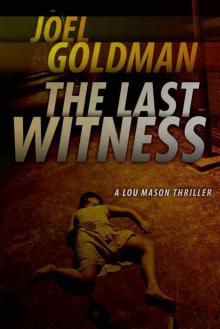 The last witness lm-2
The last witness lm-2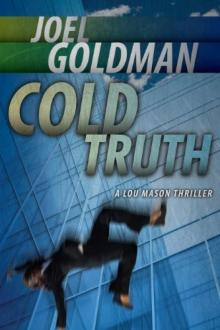 Cold Truth
Cold Truth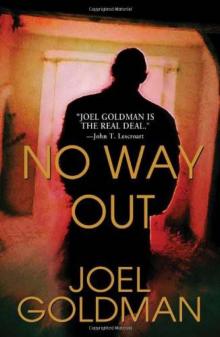 No Way Out (2010)
No Way Out (2010)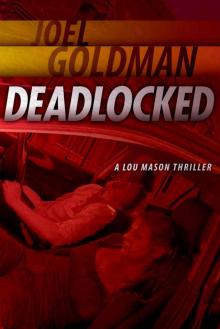 Deadlocked (Lou Mason Thrillers)
Deadlocked (Lou Mason Thrillers)![[Lou Mason 01.0] Motion to Kill Read online](http://i1.bookreadfree.com/i1/03/24/lou_mason_01_0_motion_to_kill_preview.jpg) [Lou Mason 01.0] Motion to Kill
[Lou Mason 01.0] Motion to Kill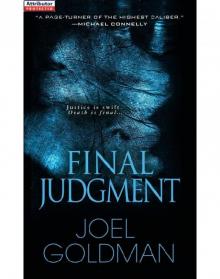 Final Judgment
Final Judgment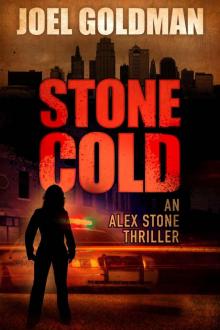 Stone Cold
Stone Cold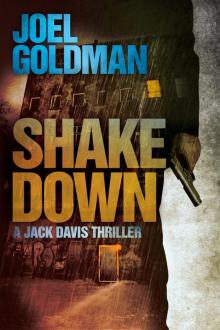 Shakedown
Shakedown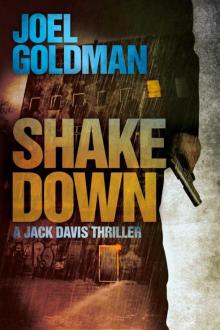 Shakedown jd-1
Shakedown jd-1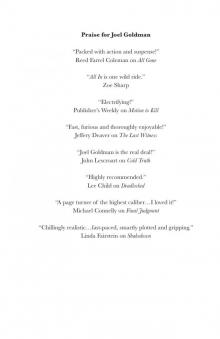 All Gone
All Gone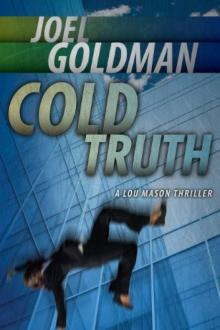 Cold truth lm-3
Cold truth lm-3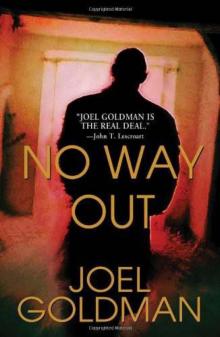 No way out jd-2
No way out jd-2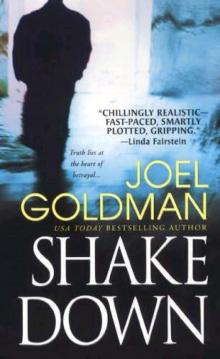 Jack Davis Mystery - 01 - Shakedown
Jack Davis Mystery - 01 - Shakedown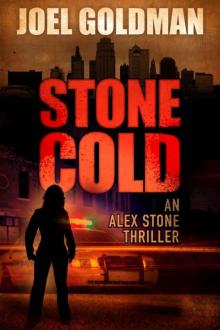 Stone Cold as-1
Stone Cold as-1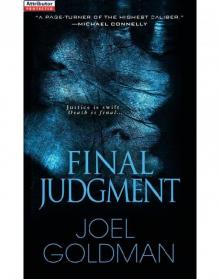 Final judgment lm-5
Final judgment lm-5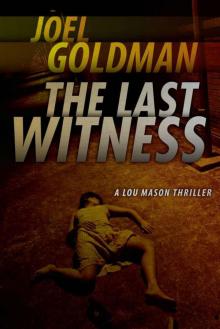 Lou Mason Mystery - 02 - The Last Witness
Lou Mason Mystery - 02 - The Last Witness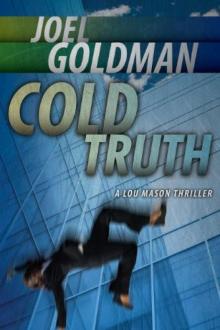 Lou Mason Mystery 03-Cold Truth
Lou Mason Mystery 03-Cold Truth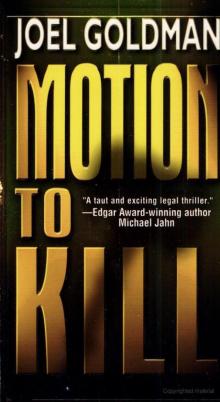 Motion to Kill
Motion to Kill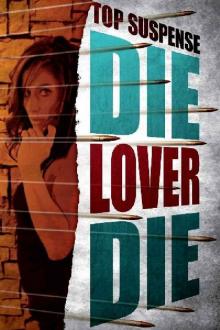 Die, Lover, Die!
Die, Lover, Die!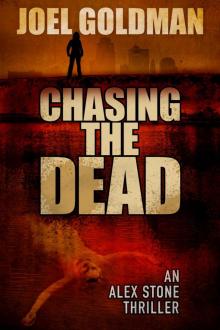 Chasing The Dead (An Alex Stone Thriller)
Chasing The Dead (An Alex Stone Thriller)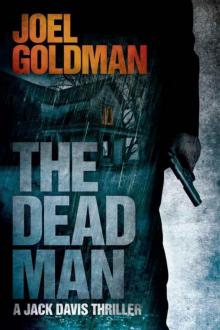 The Dead Man
The Dead Man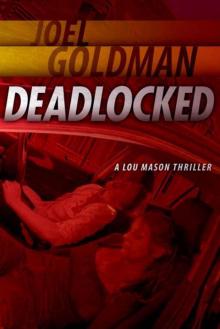 Deadlocked lm-4
Deadlocked lm-4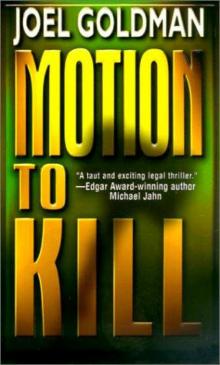 Lou Mason Mystery - 01 - Motion to Kill
Lou Mason Mystery - 01 - Motion to Kill Die, lover, die
Die, lover, die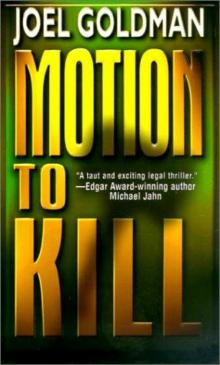 Motion to Kill lm-1
Motion to Kill lm-1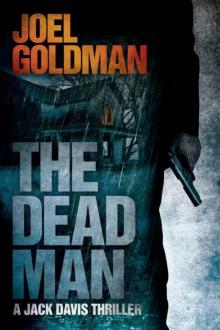 The Dead Man jd-3
The Dead Man jd-3